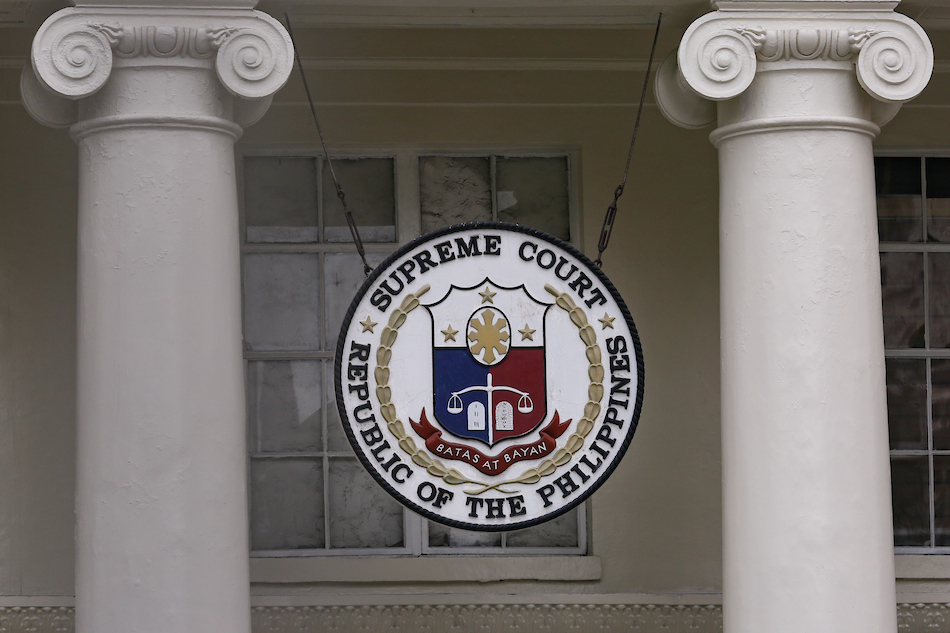Supreme Court ruling on Anti-VAWC law 'sets dangerous precedent' - group | ABS-CBN
ADVERTISEMENT

Welcome, Kapamilya! We use cookies to improve your browsing experience. Continuing to use this site means you agree to our use of cookies. Tell me more!
Supreme Court ruling on Anti-VAWC law 'sets dangerous precedent' - group
ABS-CBN News
Published Feb 13, 2023 10:49 AM PHT
|
Updated Feb 13, 2023 11:37 AM PHT
MANILA – A women's group on Monday questioned the Supreme Court's ruling that abusive mothers could be sued under the country's Anti-Violence Against Women and Their Children Act.
MANILA – A women's group on Monday questioned the Supreme Court's ruling that abusive mothers could be sued under the country's Anti-Violence Against Women and Their Children Act.
According to Joms Salvador, vice chairperson of Gabriela Philippines, the high court has "entirely missed the whole point" of the law, which recognizes that domestic violence is gendered.
According to Joms Salvador, vice chairperson of Gabriela Philippines, the high court has "entirely missed the whole point" of the law, which recognizes that domestic violence is gendered.
"The law is supposed to serve the interest of women who are historically and socially victims of cases of domestic abuse and domestic violence in the country," she told ANC's "Rundown".
"The law is supposed to serve the interest of women who are historically and socially victims of cases of domestic abuse and domestic violence in the country," she told ANC's "Rundown".
"It's also a dangerous precedent to many other legislation that acknowledges the particular situation of women as majority of victims of violence, harassment and many other forms of abuse," she added.
"It's also a dangerous precedent to many other legislation that acknowledges the particular situation of women as majority of victims of violence, harassment and many other forms of abuse," she added.
ADVERTISEMENT
For Salvador, the SC decision is a reversal of the hard-earned victory of Filipino women in legislating the Anti-VAWC law.
For Salvador, the SC decision is a reversal of the hard-earned victory of Filipino women in legislating the Anti-VAWC law.
"It is really saddening that the Supreme Court has seemingly nitpicked on the use of the word 'person' in the law and interpreted it as saying that even men or non-women can use the law to seek protection order and to seek the benefits the law affords to women," she said.
"It is really saddening that the Supreme Court has seemingly nitpicked on the use of the word 'person' in the law and interpreted it as saying that even men or non-women can use the law to seek protection order and to seek the benefits the law affords to women," she said.
In its ruling, the high court said "violence against women and children" was defined in the law as abusive acts "committed by any person".
In its ruling, the high court said "violence against women and children" was defined in the law as abusive acts "committed by any person".
But Salvador stressed that parents could apply for remedies in other laws such as the law on child abuse.
But Salvador stressed that parents could apply for remedies in other laws such as the law on child abuse.
The SC ruling stemmed from a 2017 petition filed by a man against his allegedly abusive wife on behalf of their underage daughter.
The SC ruling stemmed from a 2017 petition filed by a man against his allegedly abusive wife on behalf of their underage daughter.
A Taguig City court dismissed the petition on the grounds that the law did not apply to an allegedly abusive mother.
A Taguig City court dismissed the petition on the grounds that the law did not apply to an allegedly abusive mother.
But the high court ruled otherwise. It also noted that fathers are within their rights to file complaints on behalf of their children.
But the high court ruled otherwise. It also noted that fathers are within their rights to file complaints on behalf of their children.
ADVERTISEMENT
ADVERTISEMENT



